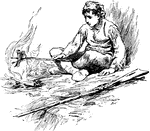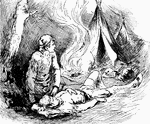Clipart tagged: ‘famous people’
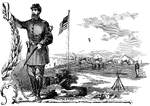
Aid-de-camp
"New Jersey Camp at Arling, Va., designated as Camp Princeton in honor of one of the Revolutionary battle…

Charles Jean Marie Barbaroux
One of the greatest of the Girondists, was born at Marseilles, March 6, 1767. At first an advocate and…
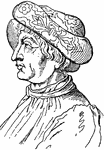
Abrecht da Barbiano
An Italian military officer; formed the first regular company of Italian troops organized to resist…
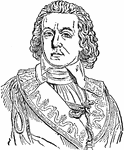
Comte de Barras
A French Jacobin, born in Province, in 1755, of an ancient family; served as second lieutenant in the…

Fra Bartolommeo
One of the most distinguished masters of the Floretine school of painting, born at Savignano, in Tuscany,…
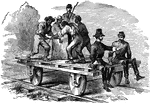
General Burnside
"Traveling in state"- General Burnside on the road from New Berne to Beaufort, N. C.

Review of Federal Army
"President Lincoln, attended by General McClellan and staff, reviewing the Federal army, on Tuesday,…
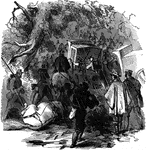
March of General Banks
"Incident in the march of General Banks's Division during a storm in Western Maryland." — Frank Leslie,…

View of Grafton
"View of Grafton, West Virginia, occupied by the Federal Troops, under the command of General McClellan,…
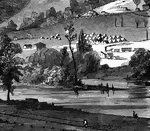
Grafton Occupied by Federal Troops
"View of Grafton, West Virginia, occupied by the Federal Troops, under the command of General McClellan,…
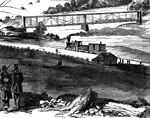
Railroad at Grafton
"View of Grafton, West Virginia, occupied by the Federal Troops, under the command of General McClellan,…
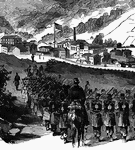
Federal Troops at Grafton, West Virginia
"View of Grafton, West Virginia, occupied by the Federal Troops, under the command of General McClellan,…

Company H
"Successful charge of Company H, first Massachusetts regiment (Captain Carruth), on a Confederate redan…

Captain Knapp
"Captain Knapp's Battery engaging the Confederates at the battle of Cedar Mountain, August 9th, 1862-…
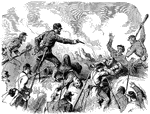
Lieutenant Colonel Morrison
"Heroic conduct of Lieutenant Colonel Morrison, Seventy-Ninth New York Highlanders, on the parapet of…

General Rosecrans
"General Rosecrans, commanding the Department of Western Virginia, surrounded by his staff, at their…
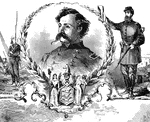
Theodore Runyon
"New Jersey Camp at Arling, Va., designated as Camp Princeton in honor of one of the Revolutionary battle…
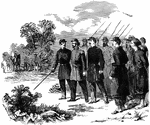
Major Taylor
"Escorting Major Taylor, of New Orleans, the bearer of a flag of truce, blindfolded, to the Confederate…

